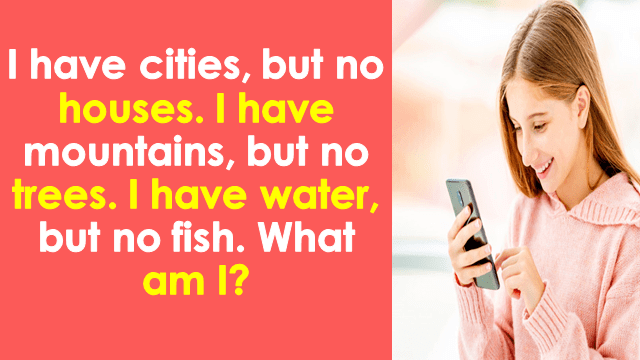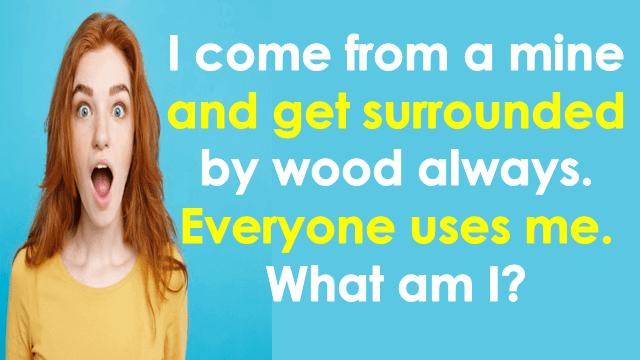Welcome to the captivating world of puzzle questions with answers in English! Whether you’re a fan of brain teasers, riddles, or logic puzzles, there’s no denying the widespread popularity of these mind-boggling challenges. From classrooms to boardrooms, puzzles have captured the attention and fascination of people from all walks of life.
Puzzle questions with answers in English: But what makes puzzle questions so intriguing? Well, for starters, they provide a stimulating mental workout that keeps our brains sharp and agile. They encourage us to think outside the box and explore creative solutions to complex problems. Not only do they entertain and challenge us, but they also offer numerous benefits for our cognitive development.
In this blog post, we’ll delve into the various types of puzzle questions you might encounter in English and uncover their unique advantages. We’ll also provide examples of common English puzzles along with strategies for solving them effectively. So get ready to unlock your inner problem-solving genius as we embark on this puzzling journey together!
Are you excited? Great! Let’s dive right in and discover the exciting world of puzzle questions with answers in English
Puzzle questions with answers in English
Types of puzzle questions and their benefits:
Puzzle questions come in various forms, each with its own set of challenges and rewards. One popular type is the classic riddle, which presents a cleverly crafted question or statement that requires creative thinking to decipher. Riddles not only exercise our problem-solving skills but also encourage us to think critically and analyze information from different angles.
Another type of puzzle question is the logic puzzle, where we’re presented with a set of clues or conditions that need to be logically deduced to find the correct solution. These puzzles are excellent for honing our analytical abilities and improving our deductive reasoning skills.
Crossword puzzles are yet another favourite among language enthusiasts. They require us to fill in words based on given hints and intersecting letters, making them great for expanding vocabulary and enhancing word recognition.
Sudoku puzzles test our ability to think strategically as we place numbers in grids while adhering to specific rules. This type of puzzle enhances logical thinking, concentration, and pattern recognition.
No matter what form they take, solving puzzle questions can have numerous benefits for our cognitive development. They improve memory retention by challenging us to remember information within specific contexts. Puzzles also enhance critical thinking skills such as problem-solving, decision-making, and lateral thinking – all essential abilities for navigating real-life situations effectively.
So whether you’re looking for an entertaining way to pass the time or seeking ways to sharpen your mental acuity, engaging with puzzle questions in English is a fantastic choice!
The popularity of puzzles in the English language
The popularity of puzzles in the English language is undeniable. People from all walks of life and across different age groups find themselves drawn to these brain-teasers that challenge their problem-solving skills and mental agility.
One reason for the widespread appeal of puzzles is their ability to entertain while also providing a sense of accomplishment. Solving a challenging puzzle can be incredibly satisfying, giving individuals a boost in confidence and a feeling of competence.
Puzzles also serve as an excellent form of mental exercise. They stimulate our brains by requiring us to think critically, analyze information, and come up with creative solutions. Regularly engaging in puzzle-solving activities can help improve memory, concentration, and overall cognitive function.
Moreover, puzzles provide an opportunity for social interaction. Whether you’re working on crosswords with friends or discussing riddles at family gatherings, solving puzzles together fosters collaboration and teamwork.
In today’s digital age where screens dominate our attention, puzzles offer a refreshing break from technology overload. They allow us to unplug from devices and engage in offline activities that promote mindfulness and relaxation.
Furthermore, the versatility of puzzle types ensures there’s something for everyone to enjoy. From word games like crossword puzzles to logic-based challenges like Sudoku or jigsaw puzzles that test spatial reasoning skills – there are endless options available catering to diverse interests and preferences.
It comes as no surprise that people continue to gravitate towards puzzle-solving as it offers both entertainment value and numerous cognitive benefits. So whether you’re looking for a fun way to pass the time or want to sharpen your mind, immersing yourself in the world of English language puzzles is worth exploring!
Types of puzzle questions and their benefits
Puzzle questions come in various forms, each with its own unique set of benefits. Whether you enjoy riddles, crosswords, or logic puzzles, these brain teasers provide more than just entertainment. They offer a range of cognitive advantages that can enhance your problem-solving skills and mental agility.
One popular type of puzzle question is the crossword puzzle. These word-based challenges test your vocabulary and knowledge in a fun and engaging way. By deciphering clues to fill in the grid, you not only expand your language skills but also improve your ability to recall information quickly.
Another variant is the logic puzzle. Logic puzzles require critical thinking as you use deductive reasoning to solve complex problems. These brainteasers often involve arranging items or determining relationships between different elements based on given clues. The analytical skills developed through solving logic puzzles can be applied in various real-life scenarios.
Riddles are yet another form of puzzle question that encourages creative thinking and problem-solving abilities. Riddles challenge you to think outside the box as you unravel their hidden meanings or find clever solutions within limited constraints.
Participating in different types of puzzle questions can sharpen your cognitive functions such as memory retention, logical reasoning, creativity, and attention to detail. So next time you encounter a brain teaser or pick up a crossword puzzle book – embrace it! Engaging with these challenging activities will not only entertain you but also give your brain an invigorating workout.
Examples of common English puzzle questions
Examples of common English puzzle questions can be found in various forms, ranging from riddles to logic puzzles. These brain-teasers are not only entertaining but also help improve our problem-solving skills and critical thinking abilities.
One classic example is the “What am I?” riddle. It presents a description or a set of clues about an object, animal, or concept, and we have to figure out what it is based on these hints. For instance: “I speak without a mouth and hear without ears. I have no body but I come alive with wind.” The answer? Echo.
Another popular type of puzzle question involves completing sequences or patterns. We are presented with a series of numbers, letters, shapes, or images and must identify the underlying pattern to determine the missing element. This challenges our ability to recognize patterns and think analytically.
Logic puzzles are another common form of English puzzle questions. These require us to use deductive reasoning to solve problems by applying logical rules or constraints provided in the question statement. They often involve scenarios such as matching people with their professions based on given clues.
Sudoku is yet another well-known example that tests our logical thinking skills by placing numbers within grids according to specific rules – each number must appear only once in every row, column, and sub-grid.
By engaging in these types of puzzles regularly, we can sharpen our cognitive abilities while enjoying a fun mental workout! So why not challenge yourself today with some intriguing English puzzle questions?
Strategies for solving puzzle questions effectively
1. Read the question carefully: Before diving into solving a puzzle, take the time to thoroughly understand what is being asked. Pay attention to any specific instructions or restrictions mentioned in the question.
2. Break it down: Complex puzzles can often be overwhelming at first glance. To tackle them effectively, break them down into smaller parts or steps that are easier to solve. This will help you stay organized and focused.
3. Use logic and reasoning: Puzzles often require logical thinking and deductive reasoning skills. Think critically about the information provided in the question and use your problem-solving abilities to come up with possible solutions.
4. Elimination method: If you’re stuck between several options, try using an elimination approach by ruling out choices that don’t fit the given criteria or contradict other facts in the puzzle.
5. Practice regularly: Like any skill, solving puzzles requires practice to improve your speed and accuracy. Set aside regular time to engage with different types of puzzles, such as crosswords, Sudoku, riddles, or brain teasers.
Remember that each puzzle is unique and may require different strategies for effective solution-finding! Keep experimenting with different approaches until you find what works best for you.
Answers to popular English puzzle questions
1. The Missing Letter Puzzle: In this puzzle, a series of letters or numbers is given with one missing element. Your task is to find the pattern and figure out what should replace the missing letter. For example, if the sequence is A, C, E, or G; the missing letter would be I.
2. The Rebus Puzzle: These puzzles use pictures or symbols to represent words or phrases. For instance, a picture of an eye could mean “I” and a picture of a heart could stand for “love”. So when you see these images together – “I love”, it becomes clear that they mean “I love you”.
3. The Wordplay Puzzle: This type of puzzle involves playing with words and their meanings. An example might be: What word becomes shorter when you add two letters? The answer is ‘short’. When you add ‘er’ at the end of ‘short’, it becomes shorter.
4. The Logic Grid Puzzle: These puzzles challenge your logical thinking skills by presenting a grid filled with clues about certain relationships between items (e.g., colors, names). You need to use deductive reasoning to determine where each item belongs in the grid.
5. The Cryptogram Puzzle: In cryptograms, letters are replaced by other letters based on a specific rule or code system. Your task is to decode the message by identifying patterns or using frequency analysis techniques.
Remember that solving puzzles not only provides entertainment but also helps improve critical thinking skills such as problem-solving abilities and creativity!
How solving puzzles can improve critical thinking skills?
Puzzles have long been known to be a great way to enhance our critical thinking abilities. When we engage in puzzle-solving activities, we are exercising our brains and honing our problem-solving skills. The process of deciphering clues, finding patterns, and connecting pieces together requires us to think critically and analytically.
One of the key benefits of solving puzzles is that it helps us develop logical reasoning skills. As we tackle complex puzzles, we learn how to break down problems into smaller, more manageable parts. This kind of systematic approach trains our minds to think logically and methodically, which can be applied not just in puzzle-solving but also in real-life situations.
Another advantage of puzzle-solving is that it improves our ability to think creatively. Puzzles often require us to think outside the box and come up with innovative solutions. By engaging in this type of mental exercise regularly, we become more adept at generating unique ideas and approaching challenges from different perspectives.
Furthermore, solving puzzles enhances our attention to detail. Whether it’s spotting hidden clues or noticing subtle differences between similar elements, puzzles demand focus and observation. This heightened attention translates into improved observational skills that can benefit various aspects of life.
Additionally, puzzling exercises help foster persistence and perseverance. It’s common for solvers to face roadblocks along the way while attempting a challenging puzzle question; however, they must not give up easily! The ability to persevere through difficulties cultivates resilience – an essential trait for tackling obstacles encountered throughout life.
Conclusion: Puzzle questions with answers in English
In this article, we have explored the world of puzzle questions in English and their increasing popularity. Puzzles not only provide entertainment but also serve as a great way to enhance critical thinking skills. By engaging with these brain teasers, you can sharpen your problem-solving abilities and improve your cognitive function.
We discussed different types of puzzle questions that you may come across, such as riddles, logic puzzles, and math problems. Each type offers its own set of benefits and challenges, allowing you to exercise various mental faculties.
Additionally, we provided examples of common English puzzle questions to give you a taste of what awaits when you dive into the world of puzzles. From wordplay to lateral thinking puzzles, there is something for everyone’s interests and preferences.
To solve puzzle questions effectively, it is crucial to develop strategies that help unravel their hidden solutions. We shared tips like reading the question carefully multiple times, breaking down complex problems into simpler parts, and utilizing trial-and-error methods where needed.
We revealed the answers to popular English puzzle questions so that you can test your problem-solving skills or learn from them if they stumped you initially. Remember that practice makes perfect!
By regularly engaging with puzzles in the English language or any other language for that matter, you will witness improvements in critical thinking abilities such as logical reasoning and creative problem-solving. So why not challenge yourself today?
Embrace the joy of unravelling mysteries through cleverly crafted enigmas – tackle those brain teasers head-on! Whether it be during leisure time or even within educational settings like classrooms or study groups – these mind-bending activities are bound to leave lasting impressions while fostering growth.
So go ahead – immerse yourself in an exciting world filled with intriguing conundrums! Unleash your inner detective as each new puzzle presents an opportunity for personal growth and intellectual stimulation.
Puzzle questions with answers in English:
Puzzle:1 ’This true I have both face and
hands,
And move before your eyes,
Yet when I go, my body stands,
And when I stand, I lie
Answer: A Clock
Puzzle:2 My clothing’s fine as velvet rare,
Though under earth my dwellings are;
And when above it I appear,
My enemies put me off in fear.
The gardener does at me repine,
I spoil his works as he does
mine.
Answer: The Mole
Read Also: Perfume
Puzzle:3 Two twins we are, and, let it
no surprise,
Alike in every feature, shape,
and size:
We’re square, or round, of
brass or iron made,
Sometimes of wood, yet useful
found in trade ;
But, to conclude, for all-out daily pains,
We by the neck are often hung
in chains.
Answer: A Pair of Scales.
Puzzle:4 I was before the world began
And shall forever last;
E re father Adam was a man.
Or out of Eden cast.
Your youthful moments I attend.
And mitigate your grief;
The industrious peasant I befriend,
To prisoners give relief.
Make much of me if you are wise,
And use me while you may,
For you will lose me in a trice.
As I for no man stay.
Answer: Time
Puzzle:5 It foams without anger,
It flies without wings,
It cuts without edge,
And without tongue, it sings.
Answer: A Bottle of Ale
Puzzle:6 What force and strength cannot
get through
I with a gentle touch can do the;
And many in the streets would stand,
Was I not, a friend, at hand?
Answer: A Key
Puzzle What is that which has been
tomorrow, and will it be yesterday?
Answer: Today
Puzzle:8 My Habitation’s in a wood,
And I’m at anyone’s command;
I often do more hurt than good
If I once get the upper hand
I never tear the champion’s frown.
Stout things I often have done ;
Brave soldiers, I have oft laid down,
I never fear their sword and gun.
Answer: A Barrel of Beer.
Puzzle:9 My nose is long, my back is
broad and round,
And in cold weather of great
use I’m found ;
No load I carry, yet I puff and blow,
As much as heavily loaded porters do.
Answer: A Pair of Bellow
Puzzle:10 I never offend thee,
Yet thou dost me whip,
Which doth not amend me,
Though I dance and skip ;
When I’m upright thou dost like
me best,
And severely dost whip me
when I want to rest.
Answer: A Top
Puzzle:11 Chain’d, and in a dungeon laid.
Bid Chloe then, and M you tell,
What’s my name and where do I dwell
Answer: The Squirrel
Puzzle:12 Which would save them from
every alarm,
To fight, kill, and die, and
cause much misery
To those who have done them
no harm.
Answer: A Drum.
Puzzle:13 Two bodies have me,
Though both joined in one
The stiller I stand,
the faster I run.
Answer: Hourglass.
Puzzle:14 I have cities, but no houses. I have mountains, but no trees. I have water, but no fish. What am I?
This riddle aims to confuse you and get you to focus on the things that are missing: the houses, trees, and fish. You might guess you need to think about something inanimate.
Answer: A map
Puzzle:15 I come from a mine and get surrounded by wood always. Everyone uses me. What am I?
The idea of a mine might lead you to coal or a diamond. The wood detail is your best hint. This riddle is a toughie, but wood might lead you to figure it out.
Answer: Pencil lead


